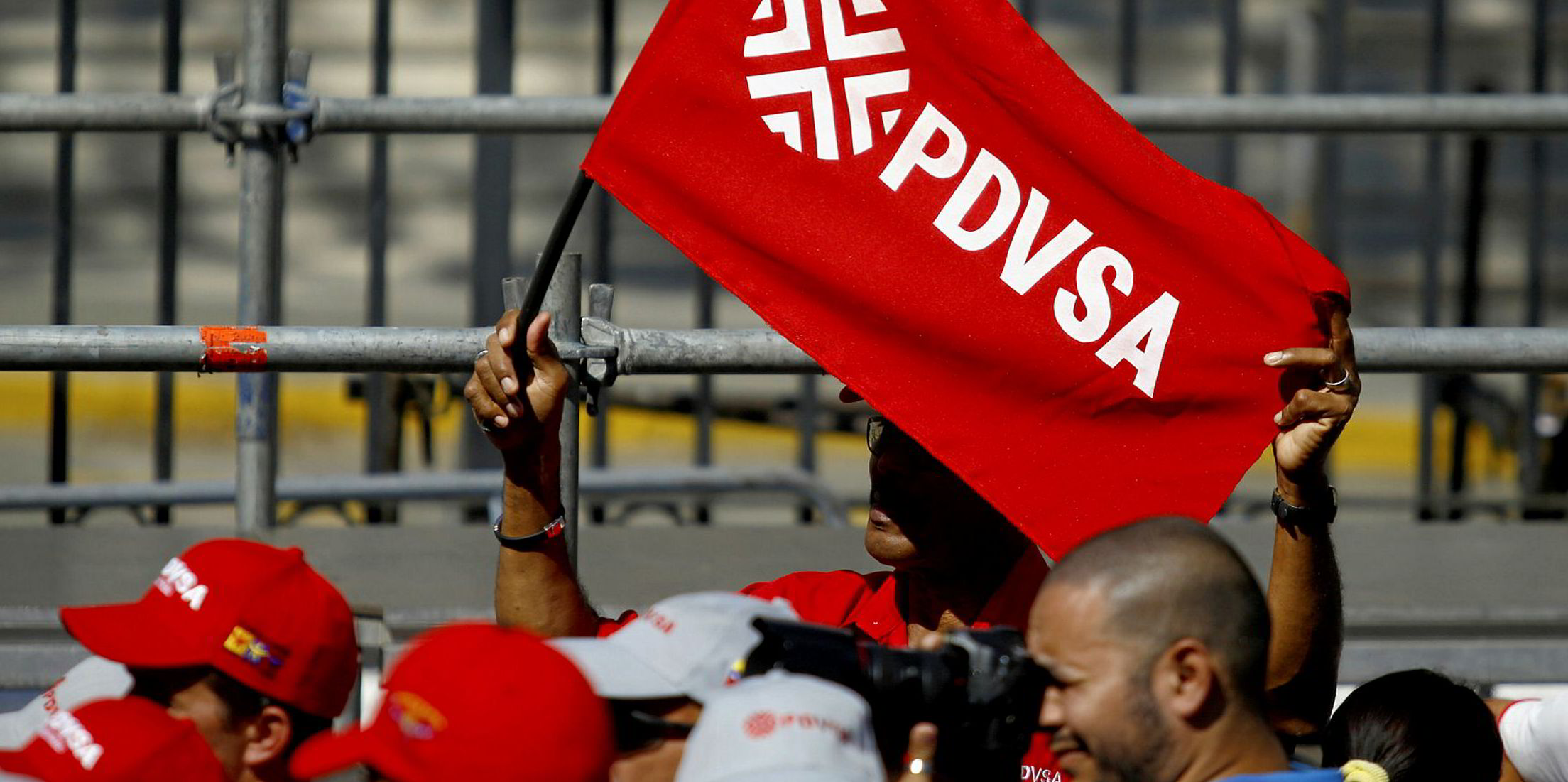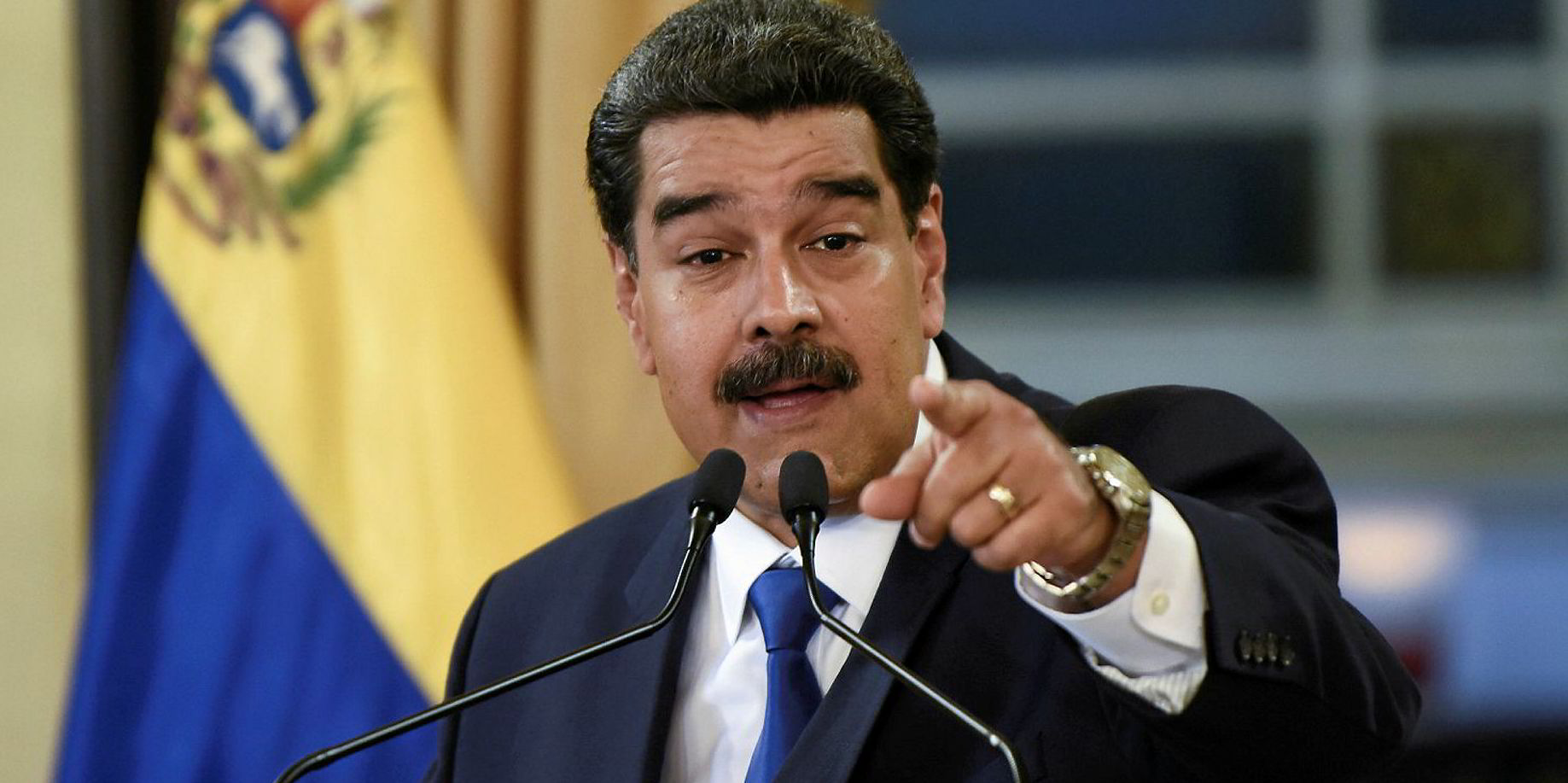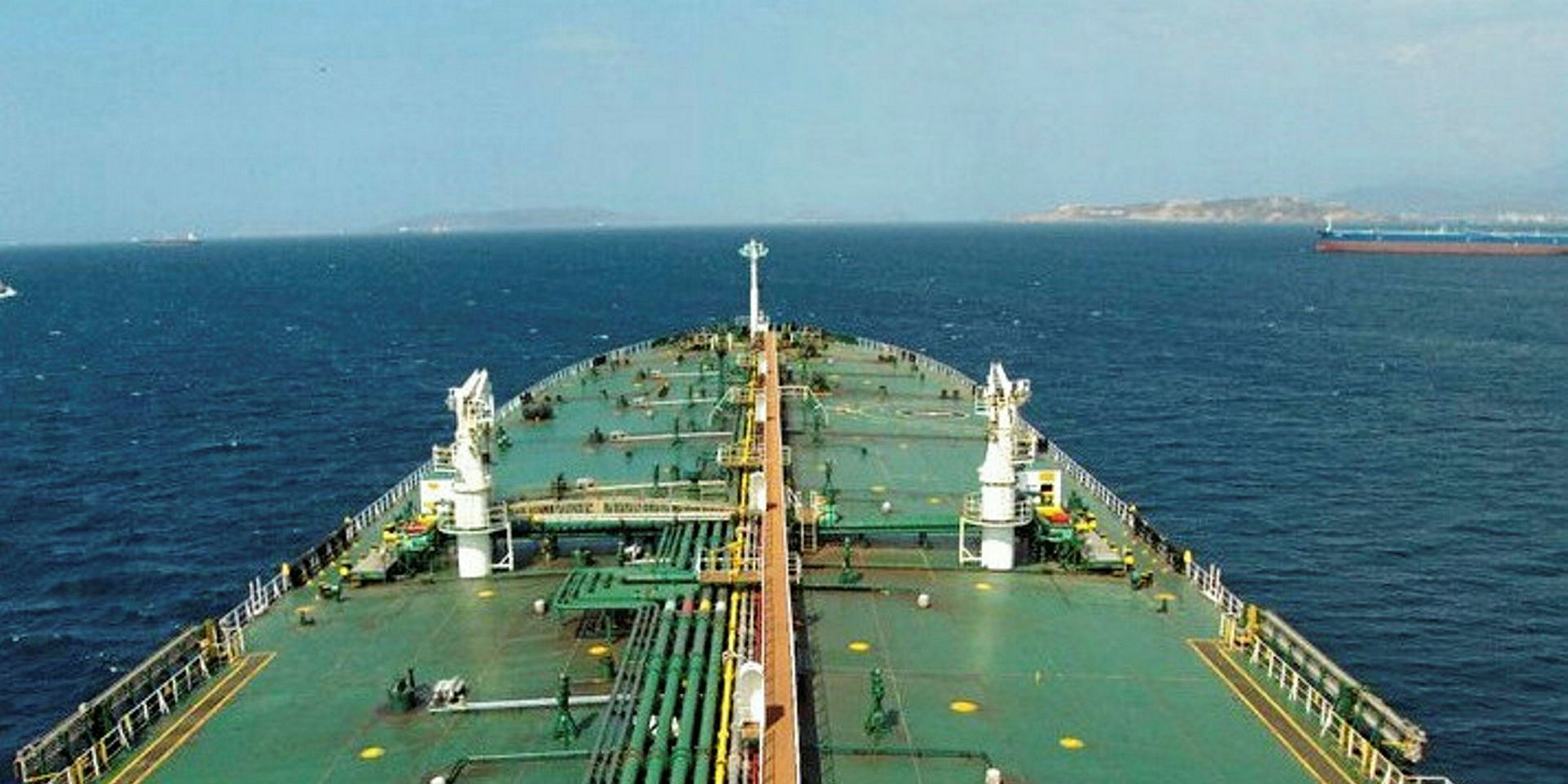To move oil to and from Venezuela or not? That is the question for shipping companies and their charterers as they weigh up the rewards of windfall payments with the risks of being potentially marked down in some way as sanction busters.
There is a big prize: the hydrocarbon business between Venezuela and the outside world has been worth close to $30bn annually.
But many firms are steering clear of the South American country, warned off by their own internal legal departments amid the potential threats to their business of upsetting the US.
Venezuelan imports to America itself have effectively been halted, bank accounts of national oil company Petroleos de Venezuela SA (PDVSA) have been frozen there and up to a dozen tankers full of its crude are idled in the Caribbean, unable to dock in the US.
Plunge in exports
A ban on American firms dealing with PDVSA has led to a 30% plunge in its crude exports since new tougher sanctions were imposed on 28 January.
This is an attempt by US President Donald Trump to topple what he sees as the rogue regime of Nicolas Maduro in Venezuela.
The stand-off has also halted Venezuelan imports of US naphtha, which are traditionally used to dilute the South American country’s trademark heavy crude. This has impacted the product tanker trade and, in the longer term, could cripple Venezuelan domestic petrol supplies.
There was an expectation among some political analysts in Washington that sanctions plus recognition for the self-proclaimed interim Venezuelan presidency of Juan Guiado would quickly lead to the collapse of Maduro’s reign.

But Maduro is doggedly hanging on — partly because he retains the political support of China and Russia as well as his army and a slice of his own population.
The current regime in Caracas has presided over a calamitous economic decline triggered initially by the collapse in the price of oil, which is by far the country’s largest export.
This has led to a social crisis with tens of thousands of Venezuelans fleeing the country to escape food and medical shortages.
Trade embargo
The current embargo will make the crisis inside the country much worse, in the short term anyway.
Outside Venezuela, brakes on its imports and exports have led to normal tanker trading patterns being upset. They also helped global Brent crude prices to bounce back up to $65 per barrel.
Vitol, the world’s largest oil trader, is reported to be among those continuing to pick up supplies heading for buyers in China, another major market alongside the US traditionally.
My TradeWinds colleague Max Tingyao Lin reports the London-based trading giant had taken a Dynacom tanker to lift crude at what looks to be a 17% premium.
Vitol insists it is acting within the law and not breaking sanctions, while Dynacom has not commented on the report.
Rival trading house Trafigura has indicated it is scaling back, if not stopping, buying Venezuelan crude.
But PetroChina, another major buyer of Venezuelan crude historically, is continuing to load using vessels from another Greek-based company TMS Tankers while Saudi shipping group Bahri has also confirmed it is still active.
China and Russia — currently staunch and continuing supporters of Maduro — have lent Venezuela billions of dollars to keep the economy afloat.
They have been repaid in crude shipments, but finding buyers outside their own countries is proving difficult.
Geopolitical upheavals
These kinds of geopolitical upheavals can be highly lucrative to those willing to tangle with them, but they can also have repercussions.
Vitol had its most profitable year in 2009 when the price of oil slumped from $150 to $30.
The company’s former head of trading, Paul Greenslade, once told Bloomberg “we are long volatility” — meaning firms like this are geared to make money out of market upheaval.
These trading firms are seemingly fearless but they can also get the wrong side of a line.
Vitol received fines from a French court in 2016 after allegedly failing to meet the strict conditions for a United Nations-sponsored oil-for-food programme in Iraq when it was under sanctions.
The difficulty with the Venezuela situation is that legally it should be fine for non-US firms to continue trading. But the sanctions are about politics not the law.
The future rewards of the Venezuelan oil trade will possibly only be enjoyed by the brave, indifferent or foolish few.






